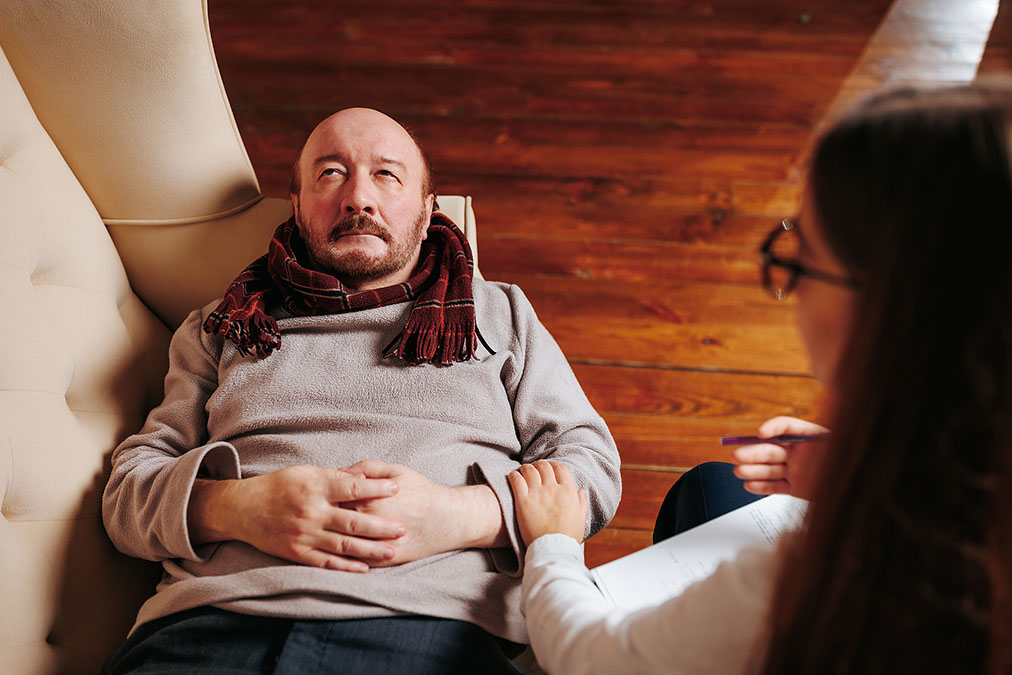 Because our brains age, cognitive decline happens in most people after age 70, even those without dementia.
Because our brains age, cognitive decline happens in most people after age 70, even those without dementia.
A new article in the journal Psychological Science explains how we can slow our rate of cognitive decline after age 70 with a simple, free approach everyone can use.
The researchers analyzed information about 1,091 people collected in the Lothian Birth Cohort 1936 study, which followed people throughout their lives.
All of the participants were born in Scotland in 1936.
They were tested at several points throughout their lives, which enabled researchers to map their cognitive changes before age 70.
They also measured their cognitive decline between ages 70 and 82 in four domains:
-
- general cognitive ability
- visuospatial ability
- memory
- processing speed
Visuospatial skill refers to our ability to understand and mentally manipulate what we see. Examples are our ability to imagine objects, draw shapes, and recognize faces.
Their analysis yielded the following results.
-
1. Almost all of the participants’ generalized cognitive ability scores increased between ages 11 and 70, as one would expect, because of the influences of education, work life, and voluntary learning.
2. People with the highest cognitive ability by age 70 had slower rates of cognitive decline after age 70 than those with low cognitive abilities. This confirms earlier research that links general intelligence with slow cognitive decline in later years.
3. People who learned a lot before age 70 had slower cognitive decline between ages 70 and 82, regardless of their general level of intelligence.
This is good news because it means that our rate of cognitive decline when we age is partly in our own hands. We just need to be willing to continue learning before age 70.
Why is early learning so important?
All brains suffer arterial deterioration, less blood flow, and mini-strokes as they age. These events damage extremely tiny parts of the brain. The more parts of the brain are damaged, the more cognitive decline a person suffers.
If you learn a lot during your younger years, much more of your brain is developed well enough that new parts can take over the functions of damaged parts.
Therefore, it is true that it is never too late to learn and keep your brain exercised.

 Overcoming IBD
Overcoming IBD Multiple Sclerosis
Multiple Sclerosis Banishing Bronchitis
Banishing Bronchitis Gum Disease Gone
Gum Disease Gone Overcoming Onychomycosis
Overcoming Onychomycosis Neuropathy No More
Neuropathy No More The Prostate Protocol
The Prostate Protocol Brain Booster
Brain Booster
 Ironbound
Ironbound
 Solution for Shingles
Solution for Shingles
 The Bone Density Solution
The Bone Density Solution
 The Ultimate Healing Protocol
The Ultimate Healing Protocol
 The Parkinson's Protocol
The Parkinson's Protocol
 The Chronic Kidney Disease Solution
The Chronic Kidney Disease Solution
 Overthrowing Anxiety
Overthrowing Anxiety The Fatty Liver Solution
The Fatty Liver Solution The Hypothyroidism Solution
The Hypothyroidism Solution
 The End of Gout
The End of Gout The Blood Pressure Program
The Blood Pressure Program
 The Oxigized Cholesterol Strategy
The Oxigized Cholesterol Strategy
 Stop Snoring And Sleep Apnea Program
Stop Snoring And Sleep Apnea Program
 The Arthritis Strategy
The Arthritis Strategy The Vertigo & Dizziness Program
The Vertigo & Dizziness Program The 3-Step Diabetes Strategy
The 3-Step Diabetes Strategy Hemorrhoids Healing Protocol
Hemorrhoids Healing Protocol The Erectile Dysfunction Master
The Erectile Dysfunction Master Weight Loss Breeze
Weight Loss Breeze The IBS Program
The IBS Program The Insomnia Program
The Insomnia Program The Migraine and Headache Program
The Migraine and Headache Program The Neck Pain Solution
The Neck Pain Solution The Menopause Solution
The Menopause Solution The Ejaculation Master
The Ejaculation Master The TMJ Solution
The TMJ Solution The Acid Reflux Solution
The Acid Reflux Solution The Fibromyalgia Solution
The Fibromyalgia Solution The Psoriasis Strategy
The Psoriasis Strategy